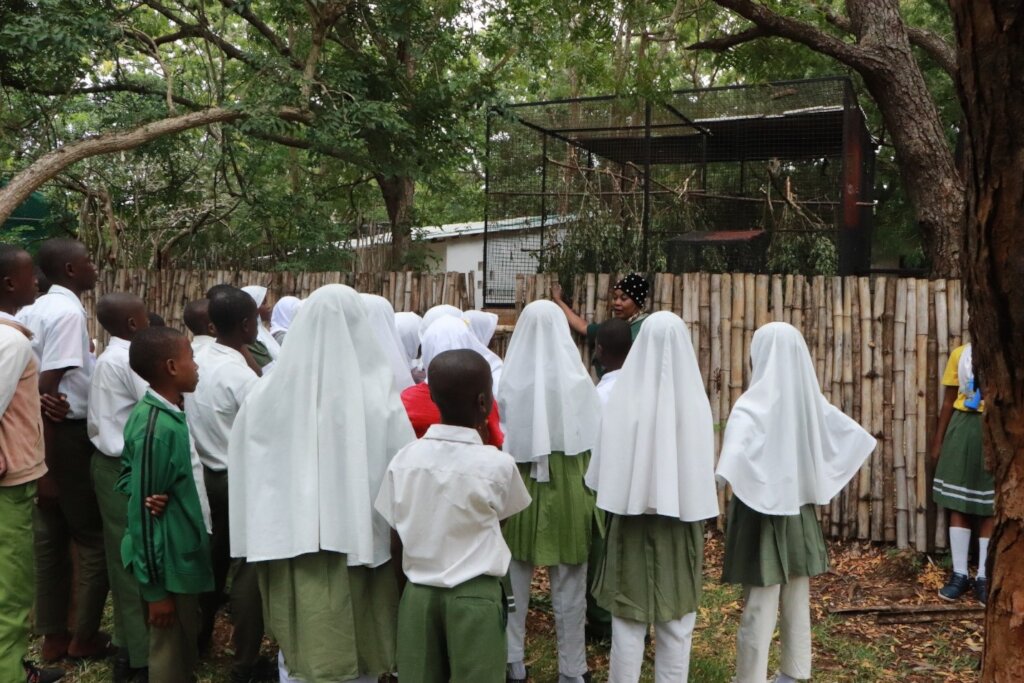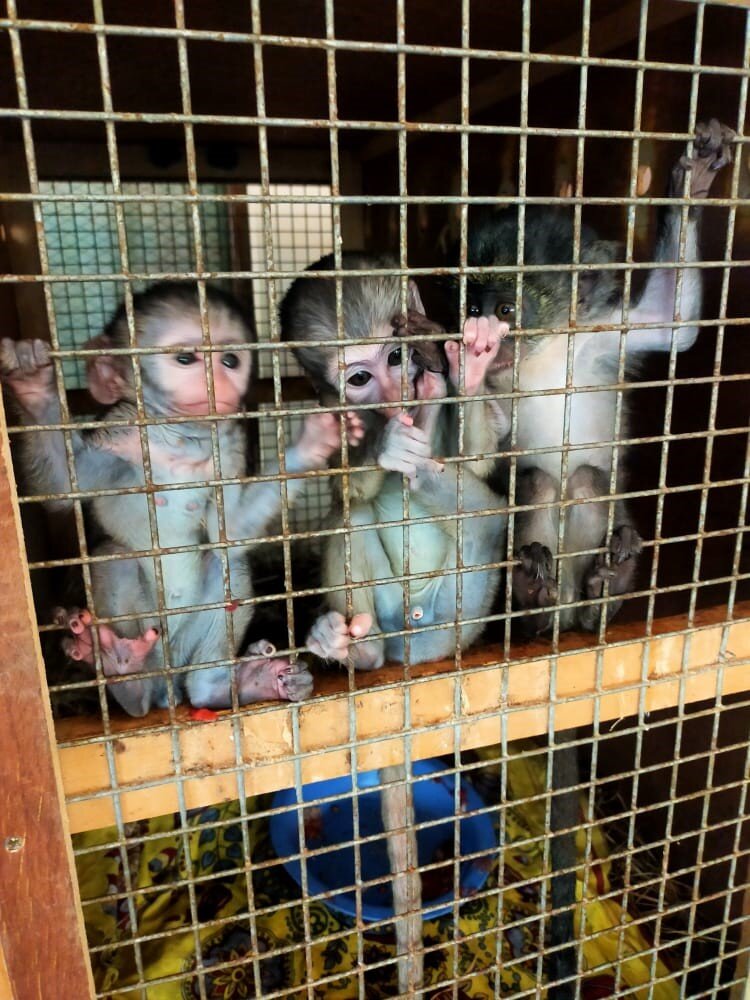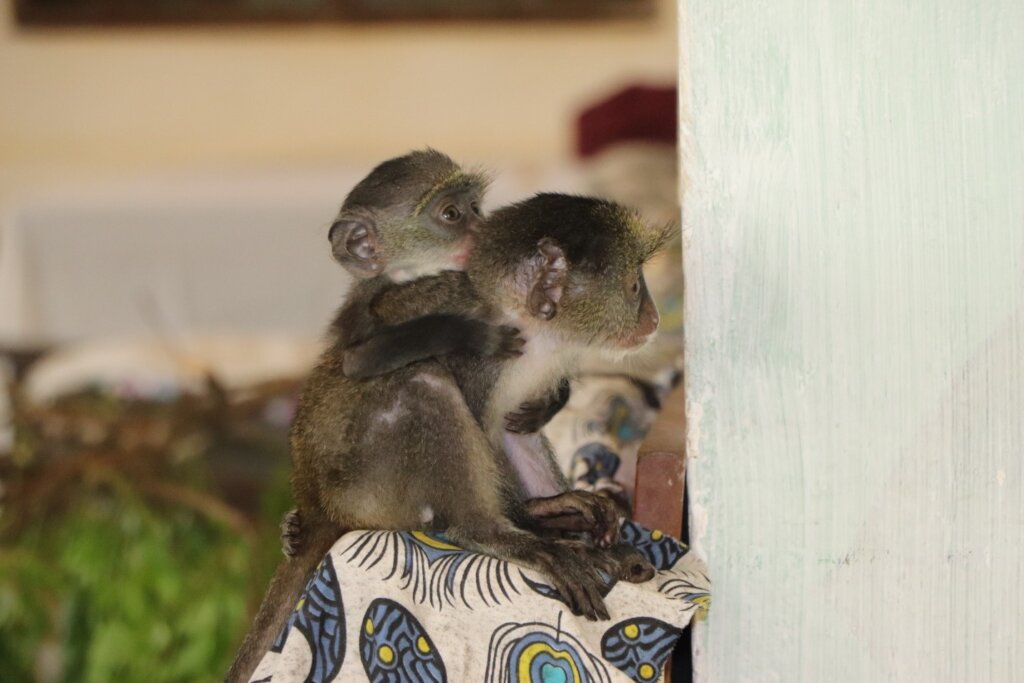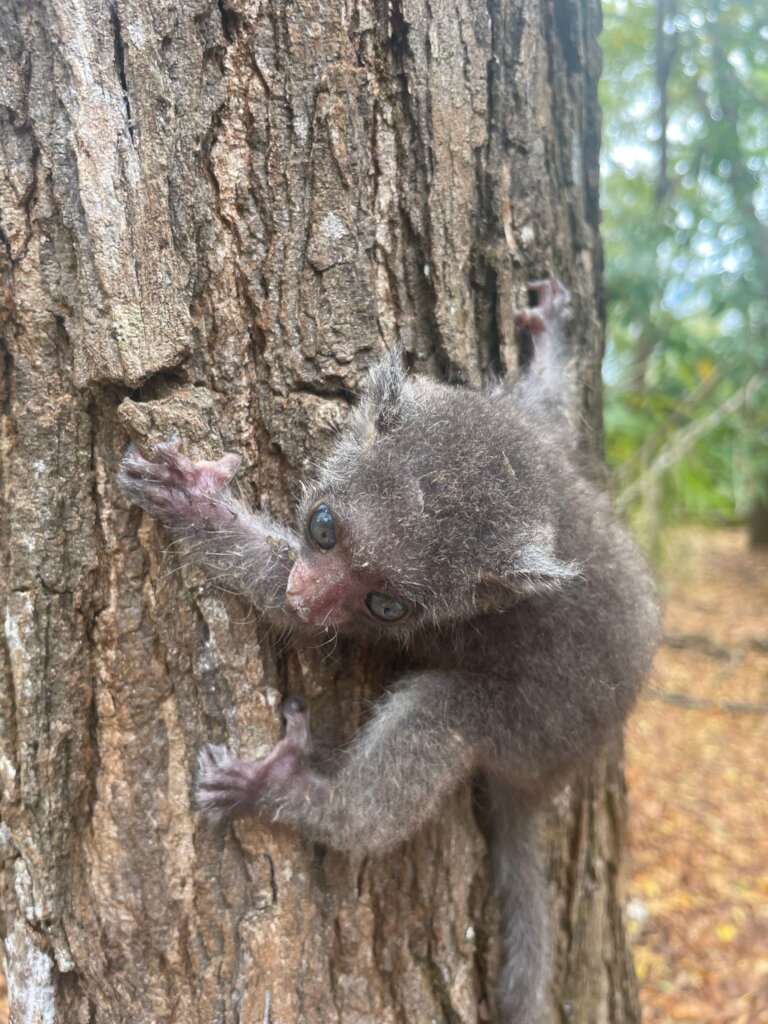By Patience Wambugu | Fundraising Manager
We, as Team Colobus, are honored for the support provided to us. Because of your investment in our work, we have been able to host 370 pupils for our education workshops whom we taught about the importance of flora, fauna, and tree cover and spurred an interest in primate conservation amongst them.
We also responded to 41 animal welfare callouts, leading to 5 infants under our care. Two Vervet monkeys, namely Moshi, and Mbweni, 2 Sykes’ monkeys named Mto and Mbuyu, and one Bush Baby named Komba. Moshi’s name is derived from Gari La Moshi in Swahili, meaning train, because he was found near the old railway station Mombasa and he was rescued from his mother, who died a week later after giving birth to him. Mbweni’s name is derived from the fact that he was found in an area called Msambweni in Kwale County after being abandoned under a cashew nut tree for two days. Mto, one of the Sykes’ victims of the primate pet trade and Mbuyu (meaning baobab fruit), was brought to us after some well-wishers found her abandoned next to a baobab tree on their way back from Chale Island. We tried re-uniting Mbuyu to her troop members, and our efforts were futile. Komba, the Bush Baby, lost his mother in an unfortunate occurrence whereby his mother fell down from a tree and died. We were called to rescue him near Worldwide Wildlife Fund headquarters in Kwale County. The five orphaned infants are doing well. Moshi and Mbweni have been integrated with the foster mother at our center named Mrembo, but Mbuyu and Mto are still in infant care. Mto is specifically under infant care because a week after integration, he became unwell, and we had to give him specialized attention. During that time, we noticed a beautiful bond between him and Mbuyu, the other Sykes’ monkey. Hence, we decided to cut short his integration with the two Vervet monkeys, Mbweni and Moshi, and let him grow together with Mbuyu. Additionally, we received a welfare call for a colobus monkey who had been abandoned by the troop, and we were able to reunite the infant to the troop. We have also conducted three pest assessments that have helped us find mitigation strategies to reduce human-wildlife conflict.
Thank you very much because every donation you make helps us continue with our work for conserving primates and their threatened habitats.
Project reports on GlobalGiving are posted directly to globalgiving.org by Project Leaders as they are completed, generally every 3-4 months. To protect the integrity of these documents, GlobalGiving does not alter them; therefore you may find some language or formatting issues.
If you donate to this project or have donated to this project, you can receive an email when this project posts a report. You can also subscribe for reports without donating.
Support this important cause by creating a personalized fundraising page.
Start a Fundraiser


